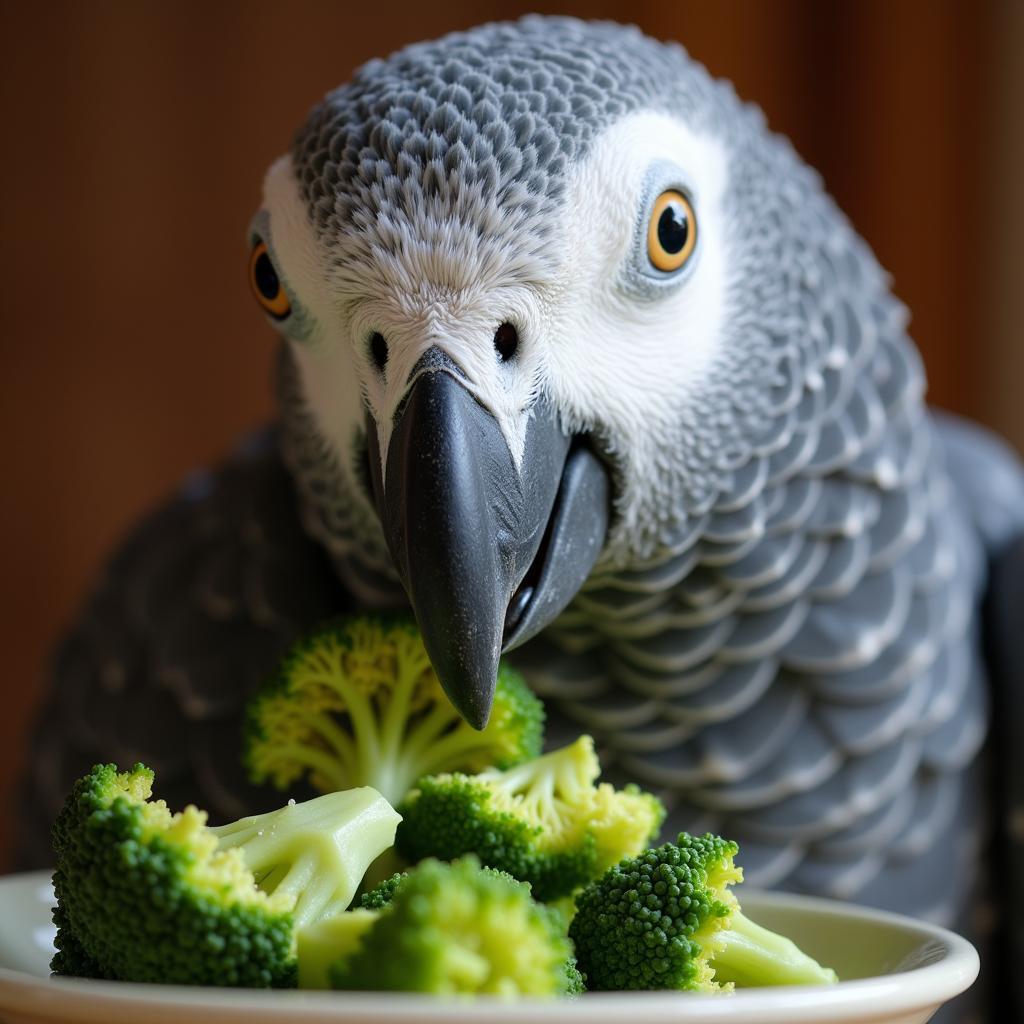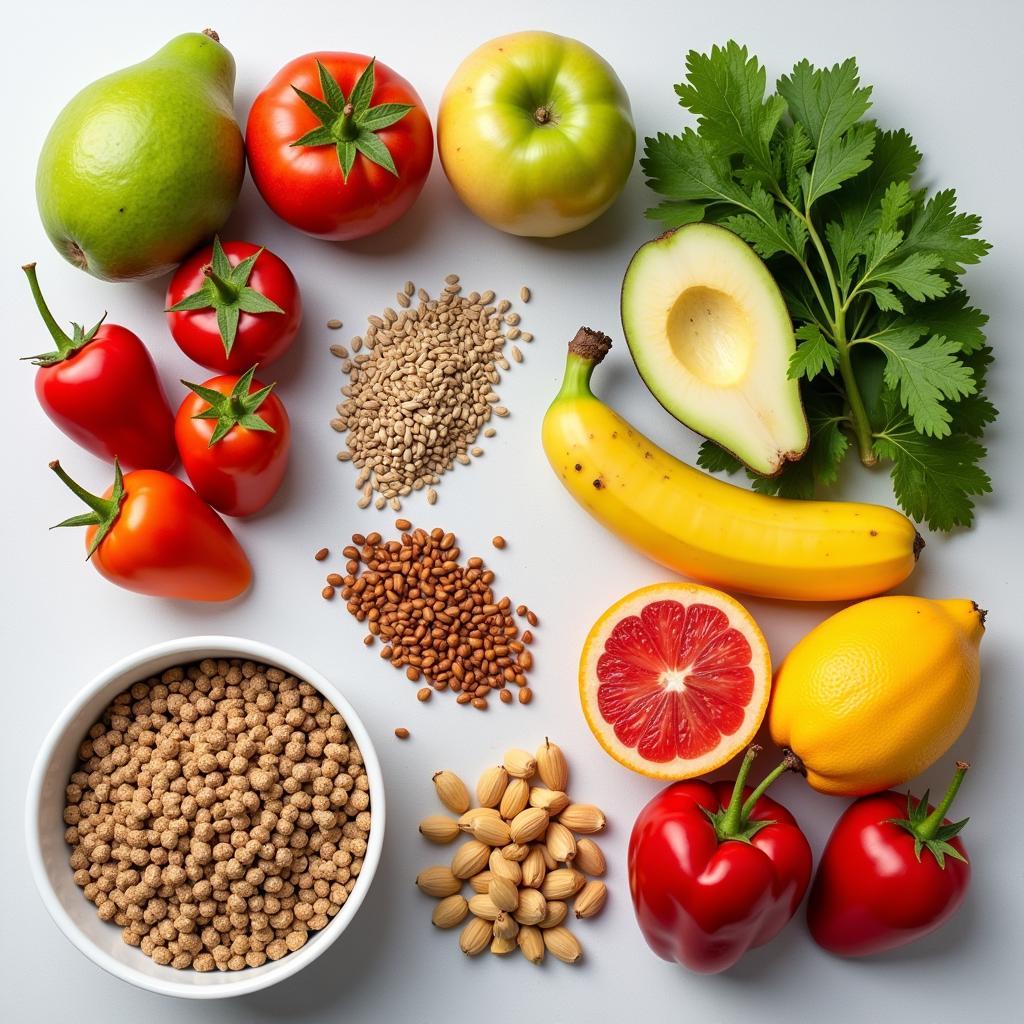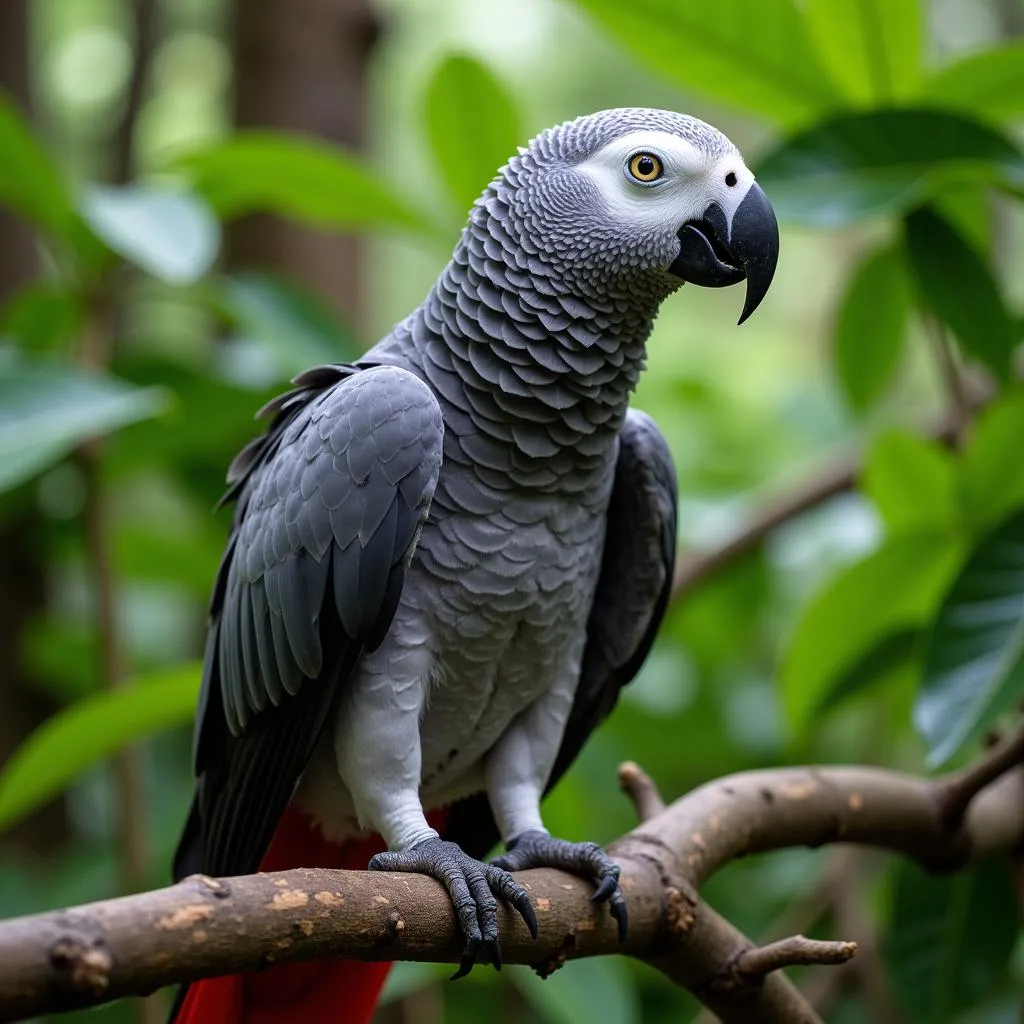African Grey Parrot Favorite Food: A Comprehensive Guide
African grey parrots are known for their intelligence and ability to mimic human speech. But what about their dietary needs? Understanding your African grey parrot’s favorite food is crucial for their health and well-being. This guide dives deep into the optimal diet for these fascinating birds.
What Constitutes an Ideal African Grey Parrot Favorite Food?
A healthy diet for an African grey parrot should mimic what they would eat in the wild. This includes a variety of fruits, vegetables, nuts, and seeds. A high-quality, formulated parrot pellet should make up about 60-70% of their daily intake. These pellets provide a balanced mix of essential nutrients. The remaining 30-40% should consist of fresh foods.
Fresh fruits like apples, bananas, berries, and oranges are great choices, offering vitamins and minerals. Vegetables such as broccoli, carrots, leafy greens, and sweet potatoes contribute to a balanced diet. Healthy fats found in nuts and seeds are also important, but should be given in moderation due to their high-calorie content.
What about those tempting “people foods”? While sharing a small bite of your meal might seem harmless, many human foods are toxic to parrots. Avoid feeding your African grey parrot avocado, chocolate, caffeine, alcohol, and anything high in salt or sugar.
Key Nutrients for African Grey Parrots
Specific nutrients play crucial roles in maintaining your parrot’s health. Calcium, for instance, is essential for strong bones and proper feather development. Vitamin A supports healthy skin and feathers, while Vitamin D3 aids calcium absorption.
You can ensure your parrot receives adequate amounts of these nutrients by incorporating a variety of foods into their diet. Calcium can be obtained through leafy greens and fortified pellets. Vitamin A is abundant in fruits like mangoes and sweet potatoes. Vitamin D3 can be supplemented with a specialized bird lamp that emits UVB rays, as sunlight is the natural source.
How to Introduce New Foods to Your African Grey
Introducing new foods requires patience. Start by offering small amounts of a new food alongside your parrot’s existing favorites. If your parrot is hesitant, try different preparation methods. Some parrots prefer their vegetables cooked or chopped finely. You could also try mixing a new food with a small amount of their favorite treat to make it more appealing.
 African Grey Parrot Trying New Vegetables
African Grey Parrot Trying New Vegetables
Remember that African Greys are intelligent creatures. They can be picky eaters, and may require several attempts before accepting a new food. Don’t give up! Persistence and variety are key to ensuring your parrot enjoys a balanced and nutritious diet. If you’re looking for ways to keep your parrot entertained while they explore new foods, you can check out some DIY toy ideas at african grey toys to make.
Signs of a Healthy Diet
A healthy African grey will have bright, smooth feathers, clear eyes, and an active disposition. Their droppings should be firm and well-formed. Changes in appetite, feather plucking, or lethargy could indicate dietary deficiencies or underlying health problems. If you notice any of these signs, consult an avian veterinarian.
“A well-nourished parrot is a happy parrot,” says Dr. Anika Sharma, a leading avian veterinarian based in Nairobi. “Providing a varied diet rich in essential nutrients is crucial for their physical and mental well-being.”
Ensuring Freshness and Quality
Always choose fresh, high-quality ingredients for your parrot. Wash fruits and vegetables thoroughly to remove any pesticides or residues. Store pellets in a cool, dry place to maintain their nutritional value. Discard any uneaten fresh food after a few hours to prevent bacterial growth.
 Fresh Parrot Food Ingredients
Fresh Parrot Food Ingredients
“Just like humans, parrots benefit from a diet rich in fresh, whole foods,” adds Dr. Joseph Karanja, another renowned avian specialist from Tanzania. “Variety is the spice of life, and this holds true for our feathered friends as well.” If you’re interested in expanding your bird’s diet, consider incorporating high-quality coffee beans, which can be found at african coffee beans for sale.
Conclusion
Understanding your African grey parrot’s favorite food and providing a balanced, nutritious diet is essential for their long-term health and happiness. By offering a variety of fresh fruits, vegetables, nuts, and seeds alongside high-quality pellets, you can ensure your feathered companion thrives. Remember to introduce new foods gradually, observe for any signs of dietary issues, and consult with an avian veterinarian if needed. Giving your African grey a diverse and healthy diet will contribute to a vibrant and fulfilling life.
FAQs
- What are the signs of a healthy African grey parrot?
- What should I avoid feeding my African grey parrot?
- How do I introduce new foods to my picky parrot?
- How much should I feed my African grey parrot daily?
- What is the importance of calcium and Vitamin D3 for parrots?
- Can I give my parrot human food?
- How do I store parrot pellets properly?
Have you ever wondered what to name your new feathered friend? Check out our african grey name generator.
Need help choosing a name for your African Grey? Explore our African grey name generator. Looking for more information on their dietary needs? We have articles covering a range of topics, from specific food choices to creating a balanced diet plan.
When you need assistance, please contact us: Phone: +255768904061, Email: kaka.mag@gmail.com or visit us at: Mbarali DC Mawindi, Kangaga, Tanzania. We have a 24/7 customer service team.



